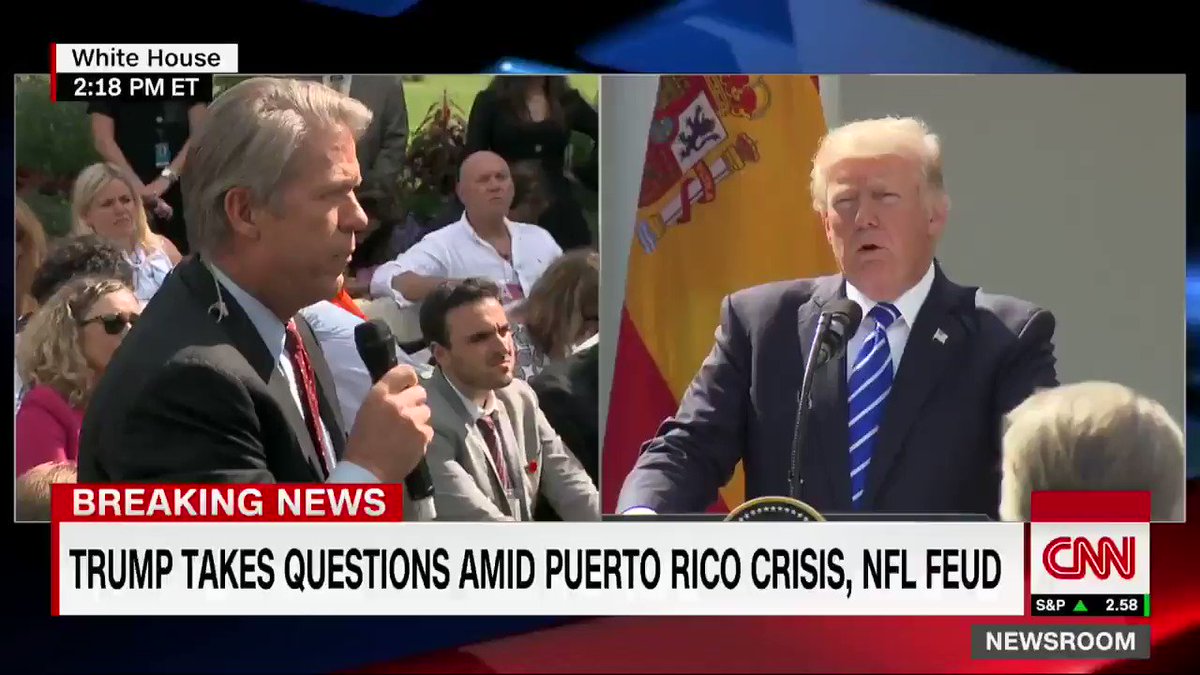On Tuesday, as President Trump imposed another round of meaningless new sanctions on North Korea’s banks, Trump said that while he encouraged the world to work together to end the country’s nuclear program, the U.S. is “totally prepared” for a military option, which he said would be “totally devastating” for North Korea. Which at least provides some additional detail to what H.R. McMaster meant, when he said overnight that the U.S. has prepared “four or five different scenarios” for how the crisis with North Korea will be resolved, adding ominously that “some are uglier than others.”
“We are totally prepared for the second option — not a preferred option — but if we take that option it will be devastating I can tell you that,” Trump said during a joint news conference Tuesday at the White House with Spain’s Prime Minister Mariano Rajoy. “For North Korea that is called the military option. If we have to take it we will.”
The president added that North Korea’s nuclear weapons threaten “the entire world with unthinkable loss of life” and “all nations must act now to ensure the regime’s complete denuclearization.”
Trump said his tough words for Kim Jong Un were a reply to the North Korean leader’s own words. “He’s saying things that should never, ever be said,” Mr. Trump said.
Trump also declared North Korea an “outlaw regime” and thanked Chinese President Xi Jinping for breaking banking ties with his Asian neighbor and for placing new restrictions on Pyongyang while enforcing new United Nations sanctions on Kim Jong Un’s regime.
“I applaud China’s recent action to restrict its trade with North Korea,” Trump added. “In particular I applaud China for breaking all banking relationships with North Korea. I want to thank President Xi.”
The U.S. Treasury Department stepped up measures Tuesday in the effort to choke off North Korea from the international financial system by imposing new penalties on banks and individuals linked to the country’s financial networks.
According to Bloomberg, the U.S. designated eight North Korean banks and 26 North Korean nationals who act as representatives for the country’s banks, operating in China, Russia, Libya and the United Arab Emirates.
One day prior, North Korean Foreign Minister Ri Yong Ho escalated tensions by declaring that his country would be within its rights to shoot down U.S. warplanes flying in international airspace, arguing that Trump’s tough language at the United Nations last week amount to a declaration of war. That startled financial markets, coming just days after the Pentagon sent planes near North Korea’s border.
As discussed this morning, Trump’s National Security Adviser H.R. McMaster said that the U.S. has gamed out four or five different scenarios for dealing with North Korea and “some are uglier than others.” Speaking at an event in Washington hosted by the Institute for the Study of War, McMaster said that “there’s not a ‘precision strike’ that solves the problem,” and “there’s not a military blockade that can solve the problem. What we hope to do is avoid war, but we cannot discount that possibility.”
Subsequently, speaking before the Senate Armed Services Committee on Tuesday, Marine General Joseph Dunford, chairman of the Joint Chiefs of Staff, said that North Korea hasn’t made military moves to match its rhetoric. “While the political space is clearly very charged right now, we haven’t seen any change in the posture of North Korean forces,” Dunford said. “We watch that very carefully. We clearly posture our forces in the event of a provocation or a conflict.” Nonetheless, Dunford also said it’s best to assume that North Korea already has the capability to hit the U.S. mainland with a nuclear-armed ballistic missile and is likely to overcome any remaining engineering issues.

Comments
Post a Comment